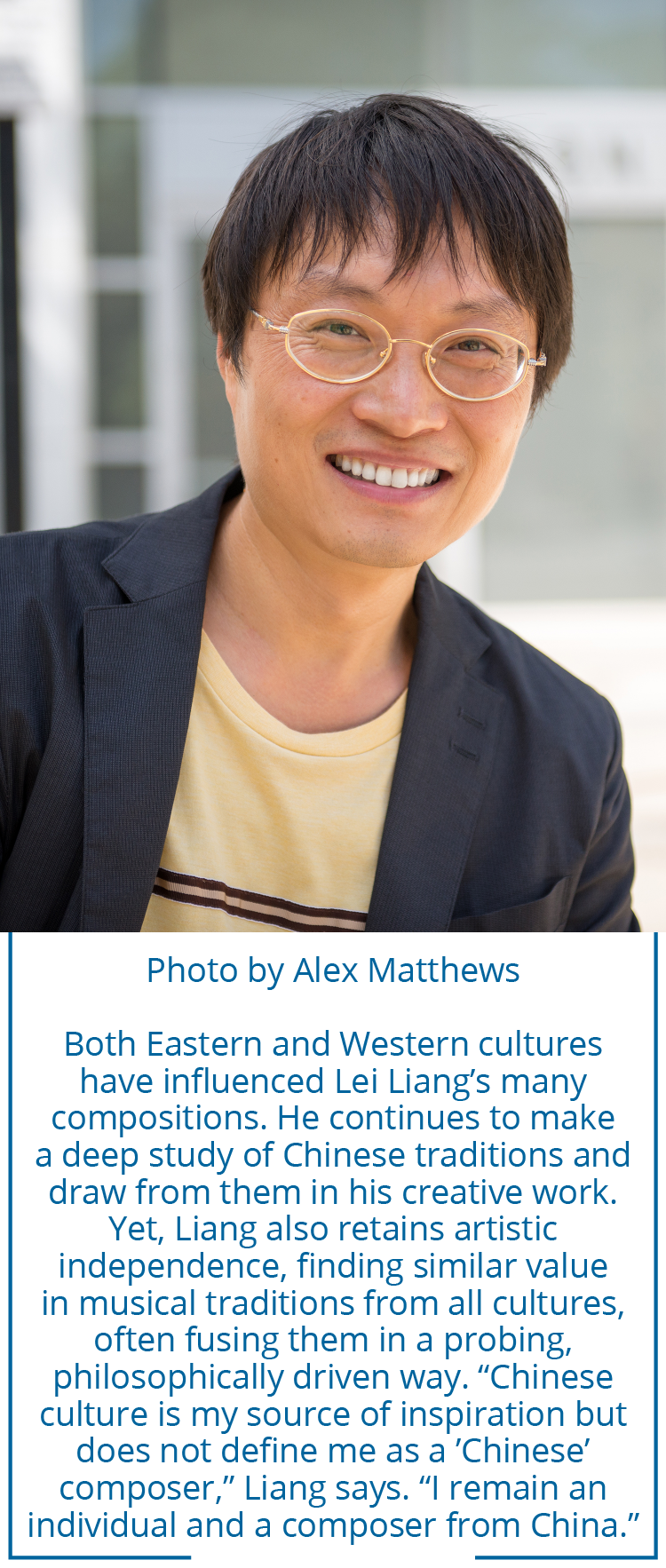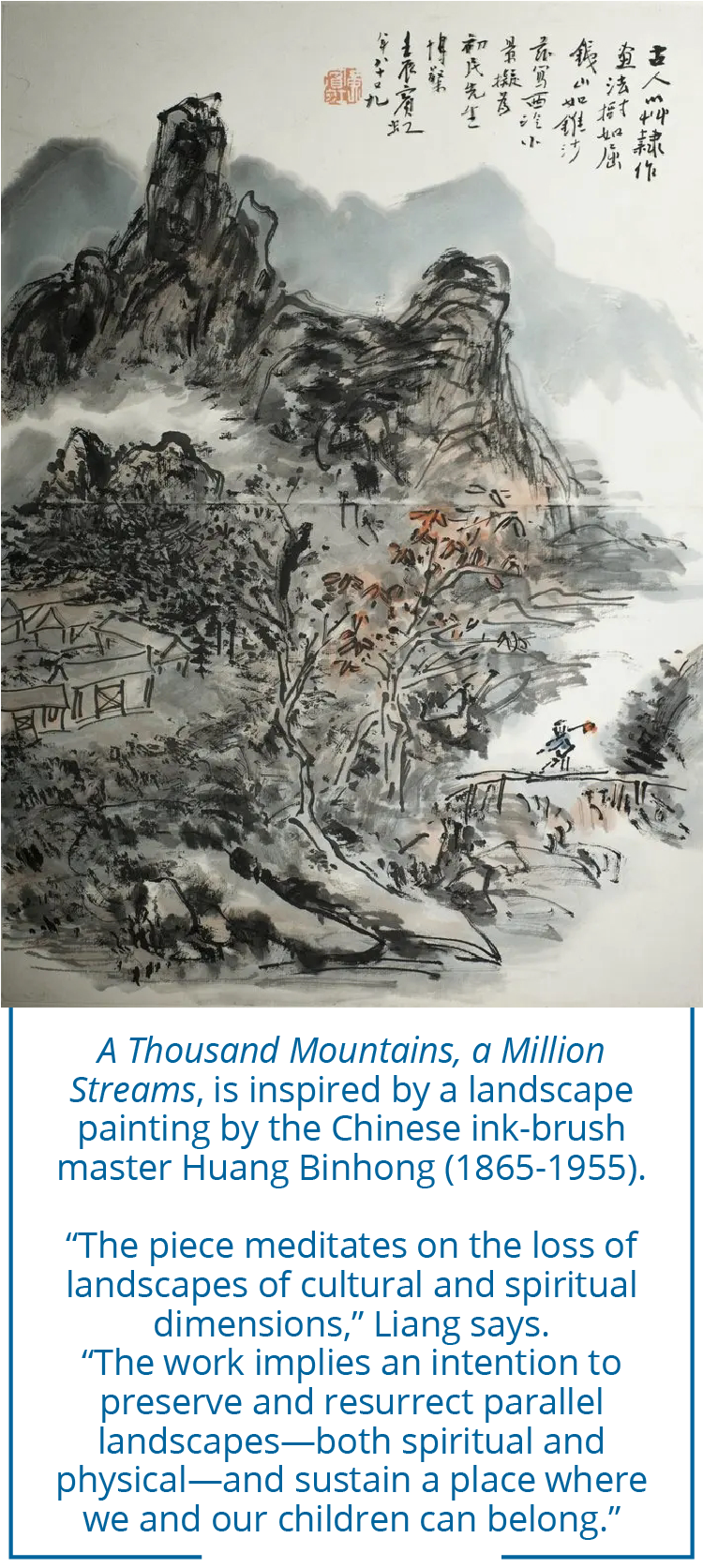MOTHER’S SONGS 春江花月夜, FOR VIOLA AND PIPA (2020)
World Première (Commissioned by Rockport Music)
Lei Liang
(b. Tianjin, China, November 28, 1972)
Composed 2020; c12 minutes

LEI LIANG: A TIMELINE
1972 Born to musicologist parents: father (opera), mother (American music) in Tianjin, China
1978 Earliest compositions, piano lessons
1985 One of the 12-year-old Liang’s compositions is chosen as a mandatory piece for the Xinghai National Piano Music Competition
1989 Two months of protesting in the Tiananmen Square demonstrations was,
Liang says, “a life-changing experience. I feel like everything I do today is
motivated by that experience, by those two months.”
1992-8 BMus and MMus at New England Conservatory
2000 Honorary Professor, Wuhan Conservatory
2001-6 Junior Fellow and PhD at Harvard. Composition studies with Birtwistle,
Czernowin, Davidovsky, Fineberg, Gyger, Lindberg and Rands
2004 on Distinguished Visiting Professor at Shaanxi Normal University in Xi’an
2006 Becomes a US citizen
2007 on Assistant Professor at the University of California, San Diego, currently
Chancellor’s Distinguished Professor of Music
2009-10 Many composition prizes and Guggenheim Fellowship
2011-12 Elliott Carter Rome Prize
- Follows the family tradition of musicology: research, field recordings, remastering of historical recordings preserving traditional music from Asia.
- Publishes 30+ articles about his research in China, South Korea and the USA
- Edits or co-edits 5 books
- Catalog of 100+ original compositions is published internationally by Schott
2013-16 Composer-in-Residence at the Qualcomm Institute, more recently Artist-in-Residence, preserving and reimagining culture through his multimedia works
2015 Saxophone concerto Xiaoxiang named a finalist for the 2015 Pulitzer Prize
2018 Senior positions at Xinghai Conservatory of Music in Guangzhou
2020 Biography and essays about Lei Liang published by Shanghai University
2021 Receives the prestigious Grawemeyer Award for his orchestral work A Thousand Mountains, a Million Streams
- Lei Liang’s recent works address issues of sex trafficking across the US-Mexican border (Cuatro Corridos), America’s complex relationship with gun and violence (Inheritance), and environmental awareness through the sonification of coral reefs.
 Mother’s Songs – Note from the composer:
Mother’s Songs – Note from the composer:
Mother’s Songs for viola and pipa was written in response to the songs sung by my teacher, the eminent Mongolian scholar Wulalji, who taught me since my childhood. During my visits to China in 2019, Professor Wulalji sang several songs that his mother, Jijig (1912-2005), the great singer from the Horchin Prairie, had taught him when he was a child.”
“These songs are of a traveler’s longing for home and a daughter’s desire to be reunited with her mother. At age 83, my teacher is the only one in Inner Mongolia who still remembers these ancient melodies, and he sang them with great emotion.”
“I, too, am away from home. My teacher’s singing evoked a strong sense of longing even as it offered profound solace. In this piece, I hope to share with the audience, the gift of these moving songs.”
Lei Liang